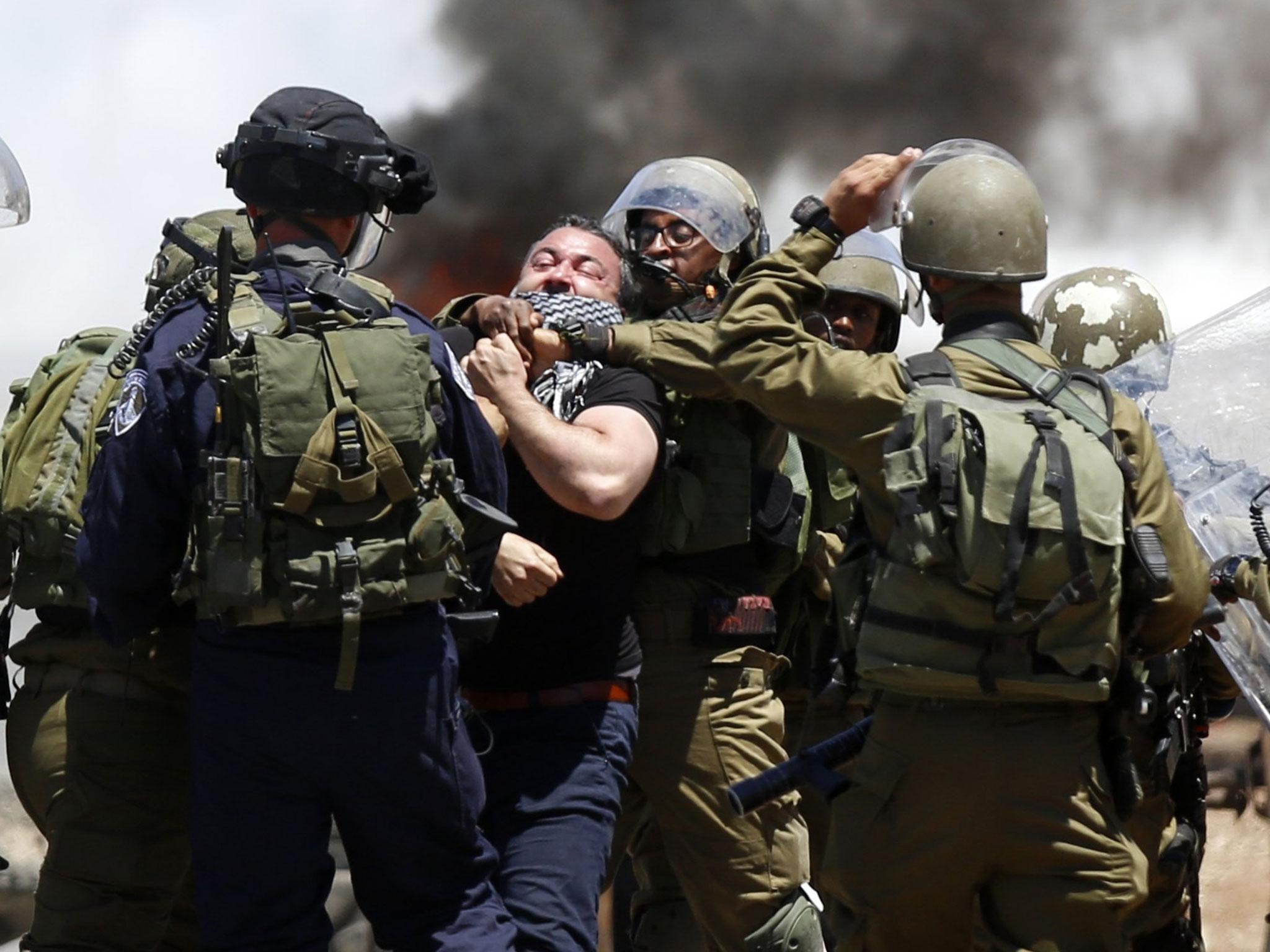The Israeli Occupation is a Jewish tragedy – it's our responsibility to make sure it comes to an end
What I need from my Jewish community is bold leadership that stands against the violence that is done in the name of our people

Your support helps us to tell the story
From reproductive rights to climate change to Big Tech, The Independent is on the ground when the story is developing. Whether it's investigating the financials of Elon Musk's pro-Trump PAC or producing our latest documentary, 'The A Word', which shines a light on the American women fighting for reproductive rights, we know how important it is to parse out the facts from the messaging.
At such a critical moment in US history, we need reporters on the ground. Your donation allows us to keep sending journalists to speak to both sides of the story.
The Independent is trusted by Americans across the entire political spectrum. And unlike many other quality news outlets, we choose not to lock Americans out of our reporting and analysis with paywalls. We believe quality journalism should be available to everyone, paid for by those who can afford it.
Your support makes all the difference.Two weeks ago, as part of the Centre for Jewish Nonviolence, I helped lead a delegation of 130 diaspora Jews to the West Bank to undertake solidarity work with Palestinian communities on the ground. Having spent most of my adult life educating and campaigning in my own Jewish community for an end to support for the Occupation, it felt necessary to take part in something that was more than words.
As part of our trip, we participated in an action organised by a historic coalition of Israeli, Palestinian and International activists to establish the Sumud Freedom Camp.
The anniversary of the Six Day War begins this week. While most Jewish diaspora communities see the war of 1948 as nothing short of a miracle, the consequences and repercussions of Israeli victory in 1967 gives rise to discomfort at the now 50 year old Occupation that continues to disrupt the lives of millions of Palestinians living in the West Bank and Gaza strip up until today.
The village of Sarura in the South Hebron Hills was displaced in the late 1990s after the Israeli Defence Forces declared the area a military firing zone. On the hill opposite our camp sits the settlement outpost of Ma’on. In a system where our Jewishness and international status gives us privileges of safety, and of freedom of movement, we must capitalise on that in order to show the reality and injustice of the Occupation in 2017. Through working with and being guided by our Palestinian partners on the ground, we are able to demonstrate solidarity and support in a way that shifts the norms of conversations around this issue in our home communities and within this type of activism.
Since the action on the 19th May, the IDF and the civil administration have attempted to shut down the camp multiple times and yet it still stands. On the second night we were there, they came and disrupted a peaceful barbeque, pushing and shoving activists who sang Jewish psalms “we will build this world with love.” They stole the generator and our tents, and stopped to take a few selfies in the process, but made no arrests. The experiences of aggression activists felt that night is just one example of the kinds of intimidation that Palestinian communities face on a daily basis in the West Bank and East Jerusalem. I am certain that the only reason the situation did not escalate was the presence of Jewish bodies.
To be clear, this is not about hating Israelis, or hating Palestinians. It isn’t down to individuals, though often this conflict feels deeply personal. But at the end of the day, this is about systems.
The Occupation is systematic. It necessitates daily indignity and violence towards Palestinians in order to maintain a status quo that prioritises Israeli sovereignty. It’s numbingly bureaucratic, overwhelmed by permits, checkpoints and court orders. It’s a 99.75 per cent conviction rate of Palestinians who are tried in the military courts. It’s Israeli teenagers in uniforms with rifles, roughing up elderly men who just want to live on their land. This is not the Israel I learnt about as a child; these are not supposed to be the actions of “the most moral army in the world.” But it is the reality.
Whether we agree with it or not, some of these things are happening in the name of Judaism. It’s a bastardised, radicalised form of it, but it is happening nonetheless. And as someone who cares so very deeply about this place and the people who live in it, what I need from my Jewish community is bold leadership that stands against the violence that is done in the name of our people.
When Bibi Netanyahu stands on a podium and says that he speaks on behalf of the Jewish people, we have a responsibility to respond. When the Israeli government gives the green light for new settlement expansion, we have a responsibility to act. And when the IDF returns one again to Sarura with bulldozers to destroy it, we must say “not in our name”.
There is an idea within Jewish texts that justice lies at the heart of what it means to be a part of this world. In the Torah we are taught “Tzedak tzedak tirdof – justice justice you shall pursue.” The Occupation has become a Jewish tragedy. Being part of a resolution that is based on a shared humanity and dignity of Palestinians and Israelis? That’s our Jewish responsibility too.
Join our commenting forum
Join thought-provoking conversations, follow other Independent readers and see their replies
Comments